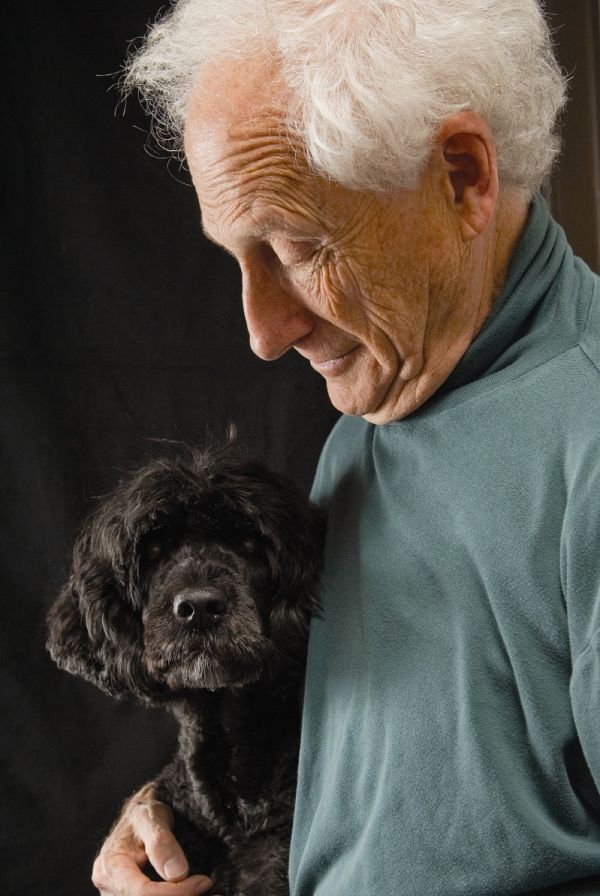Karl Gordon Lark
Karl Gordon Lark was born on December 13, 1930 in Lafayette, Indiana to Karl and Betty Lark-Horovitz. He died of metastatic prostate cancer on April 10, 2020.
From birth Gordon’s life was intertwined with science. His father, was a physicist with an interest in biology. Gordon left home for the University of Chicago in 1945 . After finishing his course in physical chemistry in 1948, his professor, Leo Szilard, suggested during a lunch interview that Gordon’s background would provide a perfect basis for a career in molecular biology, a discipline that did not exist at that time, except in the minds of a few scientists, such as Szilard. He convinced Gordon that he should take the “ Phage Course” at Cold Spring Harbor offered by Marc Adams, a faculty member in the Department of Microbiology at New York University. Marc was a wonderful teacher, and soon Gordon was enrolled in Microbiology at NYU with Marc as his mentor/ guru. Gordon became a member of the Phage Group scientists who, under the guidance of Max Delbrück, used bacterial viruses as model organisms to study genetics.
Gordon obtained his Ph.D. in 1952 and began his lifelong research in molecular biology with his companion in science and wife, Cynthia Thompson. After three years of post- doc research in Denmark and Switzerland he was instrumental in rebuilding Medical Microbiology at St. Louis University Medical School between 1956 and 1963 and subsequently within the Department of Physics at Kansas State University in Manhattan, Kansas between 1963 and 1970.
In September 1970, at the age of 39, he arrived in Salt Lake City, Utah to take over and rebuild the Department of Biology at the University of Utah. As Chair between 1970 and 1977 he hired 17 new faculty to replace the scientists who had either retired or left when the research and curriculum emphasis switched from speciation and classification to understanding the molecular and physiological changes that drove evolution at the cellular and organismic level.
Although he was personally active in genetic research, with an extensive bibliography in genetics and cell biology, Gordon regarded the development of biological sciences at the University of Utah as the most important achievement of his career. Even in the last three years of his life, he pursued his love of science by teaching an Honors course “Science as Autobiography” to allow students a glimpse of the men and women who forged the path of genetics.
His life was not devoted to science alone. From early on, he enjoyed the outdoors, from youthful canoe trips in Canada to annual trips to Colorado where he hiked with his family in the high Elk Mountains. The move to Utah expanded these adventures to include the red rock canyons and rivers in that state. This love he passed on to his children.
In his second marriage Gordon rediscovered his love for the old continent, visited with former colleagues and explored the ancient cultures of Europe. He was not only a consummate travel companion, but also a strict master to his dogs, a tormented servant to his cats, and a self-dubbed “Grumpy” to his step-grandchildren. He leaves us with sunny memories in these dark times.
Gordon was preceded in death by his parents, his wife Cynthia, and his sister Caroline Todd. He is survived by his four children Clovis, Ellen, Suzanna and Caroline, and his granddaughter Willow. He is also survived by his second wife Antje Curry and his stepdaughter Tara and her two children Liam and Briar. He will live on in the DNA of his children and in the memory of all whose lives he influenced so strongly. Our gratitude goes to Franz Goller, his colleague and special friend, who helped the family in caring for Gordon during the last months of his life.
The family is grateful to Dr. Neeraj Agarwal and his team at the Huntsman Cancer Institute whose exceptional competence allowed Gordon to enjoy life to the fullest during the last seven years. For those who wish to make a donation, please consider the Huntsman Cancer Institute or the K. Gordon Lark Endowment Fund at the University of Utah.
